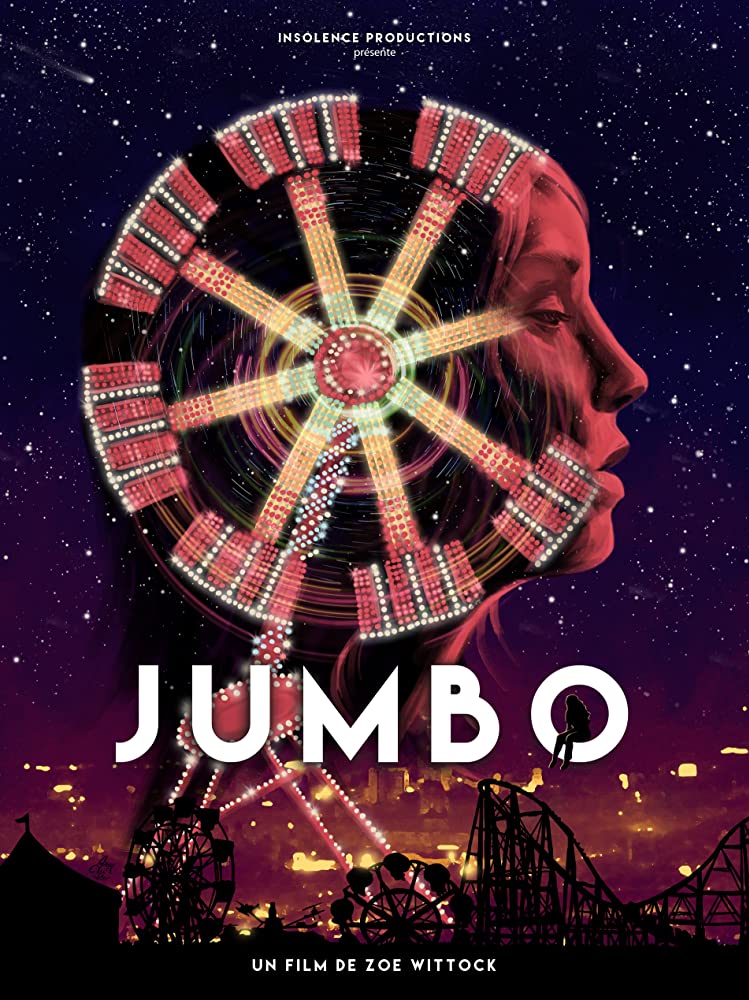Jumbo [Chattanooga Film Festival Review]
Objectophilia is a condition in which people develop romantic and/or sexual attractions to inanimate objects. Jeanne, the lead character in the captivating French drama Jumbo, has it, and there are suggestions that she may have other mental health issues, too. In her case, she falls for an amusement park ride. If that sounds like the premise of either a dopey comedy or a sleazy exploitation flick, please know that this movie is neither. Writer/director Zoe Wittock is interested in exploring the psychology of her heroine's obsession.
Jeanne (played by Portrait of a Lady on Fire's Noemie Merlant) is a socially awkward young woman who lives with her mother Margarette (Emmanuelle Bercot). Their relationship is contentious because Margarette has no boundaries and likes to taunt her daughter with sexually provocative comments. Jeanne works as a janitor at an amusement park, where she becomes drawn to a new ride. It's one of those deals where people are strapped in and the hydraulic arms lift up, spinning them around in circles while simultaneously bobbing them up and down.
At first, she turns on the ride while there alone at night. Then she starts climbing on it, caressing its metal. The ride responds, flashing lights and moving, even when the power is off. Is it somehow alive, or is she imagining it responding to her? Probably the latter, although the former is a tantalizing idea the film lets you entertain. When the ride leaks some oil, it leads to an amazing fantasy sex scene in which Jeanne visualizes her naked body being consumed by that oil. Eventually, Margarette and Jeanne's boss discover her love for Jumbo (as she dubs it) and turmoil ensues.
Jumbo works because Merlant convinces us that Jeanne's feelings for the ride are sincere. Even if we personally can't relate, we can certainly see that she gets something from it – a sense of security, a non-judgmental “partner,” an ability to feel pleasure in a life that offers little anywhere else. The actress projects such emotional vulnerability that we could never mock Jeanne; we sympathize with her too much. Given that her father long ago ran out and her mother continually makes her feel as though she doesn't measure up because she doesn't have a boyfriend, recognizing the escape Jumbo brings Jeanne is easy.
Wittock stages the scenes between Jeanne and Jumbo effectively. The way it moves or lights up in response to her illustrates the connection she feels in her mind. At one point, she hops on for a ride, and it proves literally orgasmic. Jumbo may not be a traditional boyfriend, since he doesn't talk and can't leave the ground he's bolted to, yet he becomes a character here nevertheless. We see him as Jeanne does – as an object alive in its own way.
Jumbo repeatedly infers that Jeanne has other problems. At times, we wonder if she's supposed to be autistic, and at others we suspect she might have an inability to become sexually aroused by conventional methods. The movie would have benefited from addressing those matters more directly, or getting more into the clinical side of objectophilia. A good message helps keep things afloat, however. People may be really weird sometimes, the film says, but if what they're doing makes them happy and isn't hurting anyone, what's the big deal?
Crazy as it may seem, Jumbo is one of the more touching screen romances I've seen recently.
out of four
Jumbo is unrated, but contains adult language, sexual content, and nudity. The running time is 1 hour and 34 minutes.
